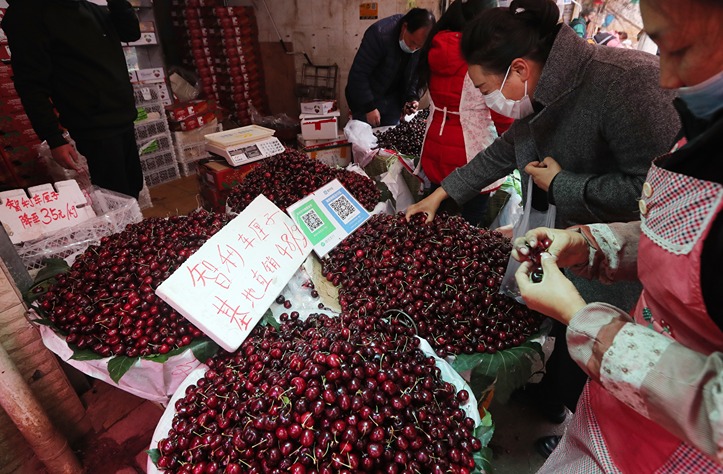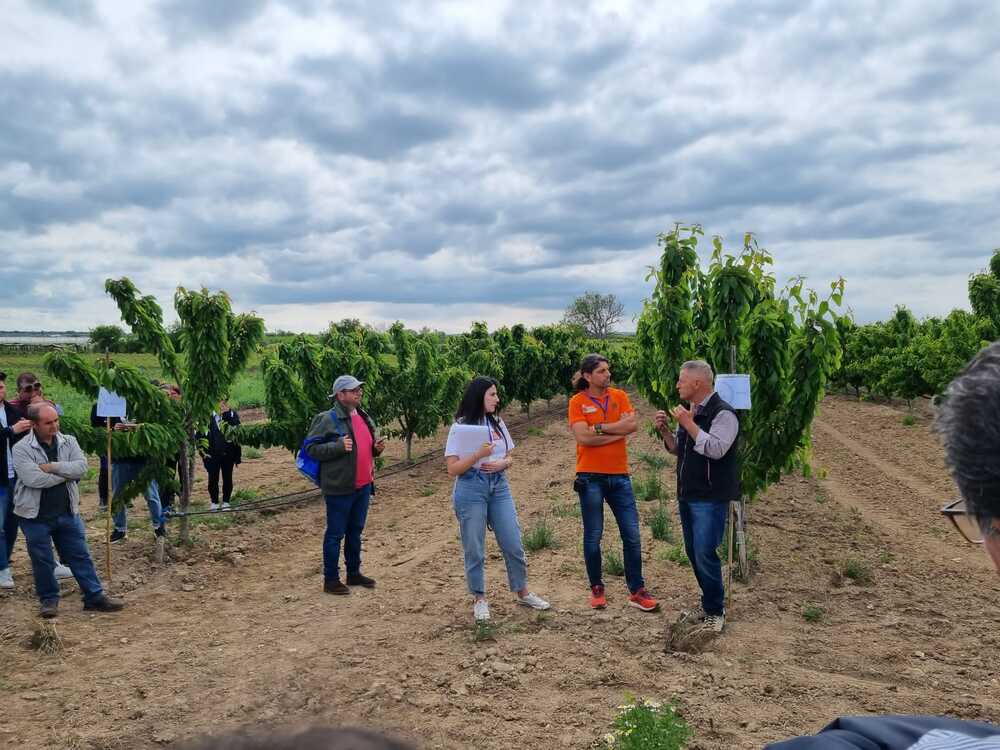Arriving with quality cherries at a time when there are no cherries in China is the desire of many, especially for the prices obtained. Producing this stone fruit in the country is the aspiration of agro-exporting companies, which is why the 1st Cherry Course organised by Redagrícola will teach the ABC of planting and agronomic management to recognised experts.
Cherries are getting closer and closer to becoming a reality in Peru.
For almost a decade, various 'test blocks' and individual efforts by local companies have been underway, some of them kept in the strictest secrecy, to find the exact recipe for producing this prized fruit.
The desire of many for the cherry, considered a gift of prosperity in China, is due to the fact that if it arrives in optimal conditions and early in the Asian giant, especially before the Chinese New Year celebrations, yields can be achieved that are difficult to match with other crops where, for example, a 5 kg box can yield $300.
Therefore, in order to continue promoting a technical conversation about this crop, Redagrícola will organise the first course entirely dedicated to the possibilities of the cherry in Peru, in person, within the context of the 8th Redagrícola Conference in Ica.
The training sessions, to be held at the Hotel Las Dunas, will take place next Tuesday and Wednesday, 4 and 5 June 2024, between 9 a.m. and 5 p.m.
The challenge of gaining an attractive commercial window
Chile has become a reference point for cherry exports to China between November and January, in several production areas of the country.
Based on this experience and the success of the three previous versions of the online cherry tree physiology and management course, which was attended by many Peruvians, Redagrícola will organise this course for the first time in Peru and in person in Ica.
The course will cover the key aspects of planting, management, physiology, development and perspectives of the crop in Peru, with the point of view of crop experts in Chile to analyse, for example, rootstocks and varieties; crop physiology; harvesting techniques; crop management and perspectives in Peru.
One of the speakers will be Dr. Karen Sagredo, a specialist in fruit tree physiology and cultivation consultant for the cherry tree, who has become one of the points of reference in the development of this fruit in Chile with regard to aspects such as pollination and fruit set.

She is also an academic at the University of Chile and has focused her research on integrated fruit production, winter recession physiology, floral biology, growth regulators and adaptation to climate change.
During the course, Dr. Sagredo will illustrate all the opportunities of cherry cultivation in Peru, from genesis to harvest, explaining the 'A-B-C' of the crop, as well as plant adaptation to the Peruvian environment, with its main limitations and advantages.
Very early cherries
Those who have broken record after record for early harvests have been the growers of Ovalle, in the Coquimbo region, some 500 km north of Santiago, who have consistently managed to export their cherries to China in the 42nd week and even in the 41st week, i.e. in mid-October.
Consultant Jorge Astudillo, one of the course lecturers, was one of the forerunners of this crop in the northern part of the country, with the detailed study of phenology and the use of technology to obtain the earliest harvests in the country.
Astudillo, an agricultural engineer from the University of Chile, production manager and advisor to small farmers in his region, will focus his presentation on the key aspects of establishing the crop in areas with low cold requirements, while also reviewing the most suitable varieties and rootstocks for early areas.
The expert will illustrate the management strategies for cherry trees in low cold storage conditions and the technological and technical innovations that have enabled him to distinguish himself as the first Chilean producer to reach China.
L'esperienza peruviana
The course will also include the experience of Gabriela Mercedes Crespo, responsible for research and development of new crops at Agualima, a company that reported on its cherry tree experiments in Trujillo and plans to start exporting its cherry production in six years' time.
Crespo, an agricultural engineer with a master's degree in integrated pest and disease management in agro-ecological systems from the National University of Trujillo, will talk about his experience in setting up a cherry orchard in Peru and the questions to ask yourself before entering the industry.
Agualima, who produces blueberries, citrus fruits and avocados on around 1,000 hectares in the Trujillo area, has been conducting research and tests on this species for several years; Crespo emphasised the challenges faced by the cherry tree, some of which were also faced by the blueberry in the country.
To participate in this course, Redagrícola has put up pre-sales with preferential prices, which include tickets for the Ica Conference and the First Cherry Tree Course in Peru, which will run until 4 May 2024.
For all ticket information click here
Source: Redagrícola
Images: Redagrícola
Cherry Times - All rights reserved











